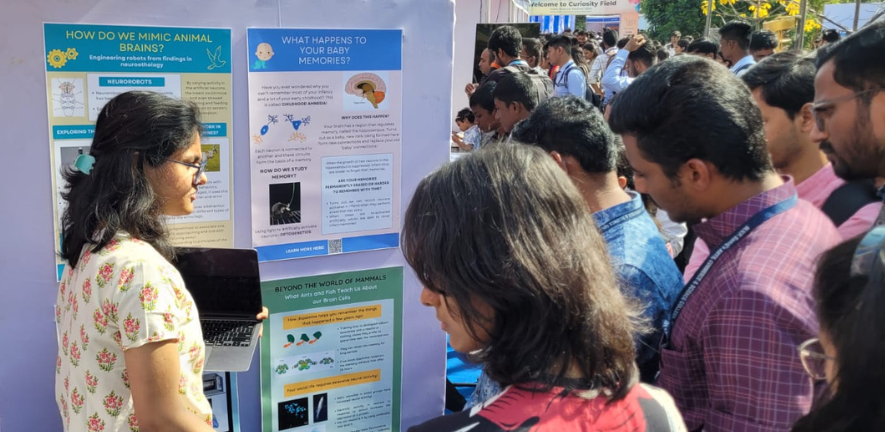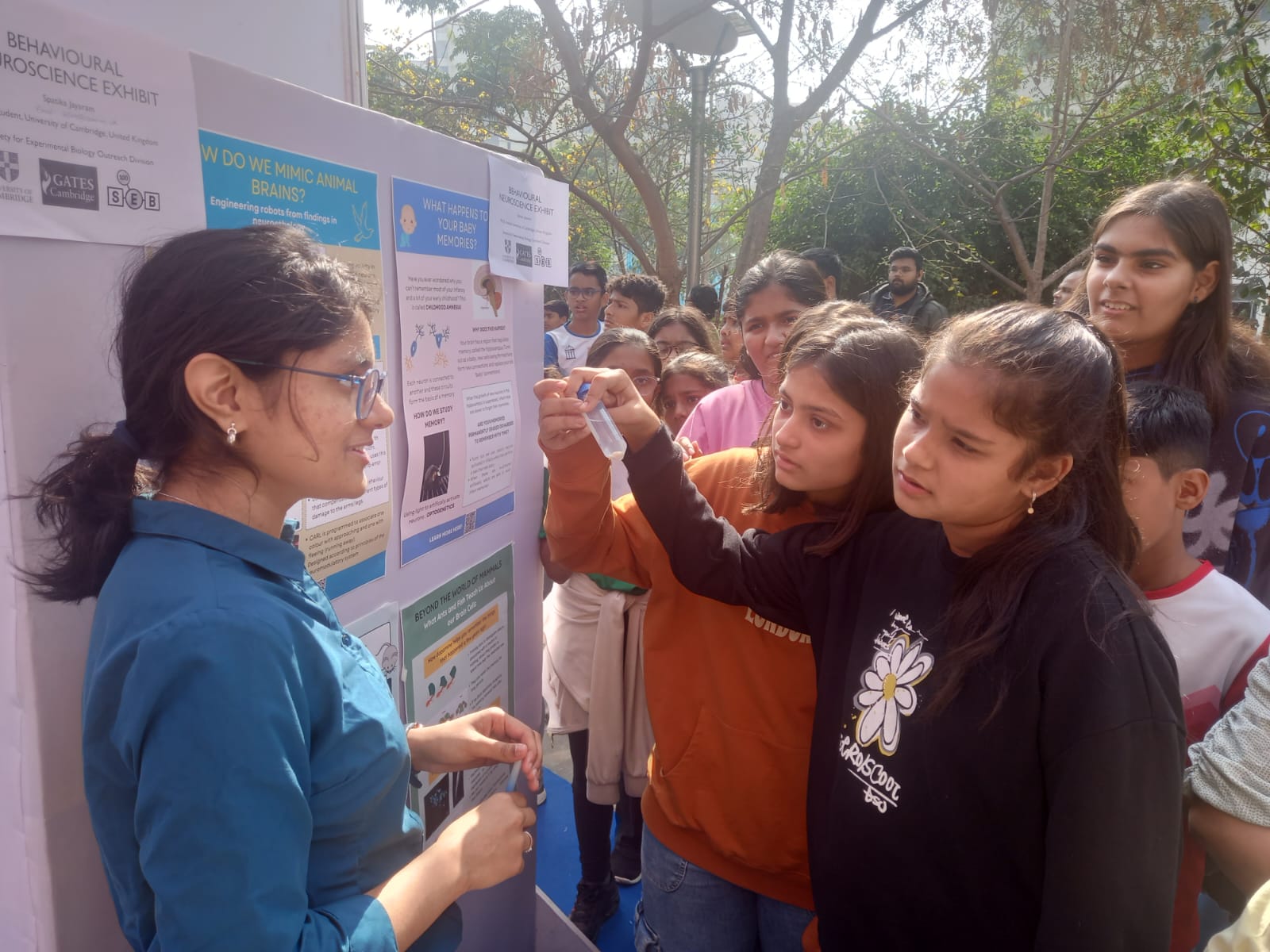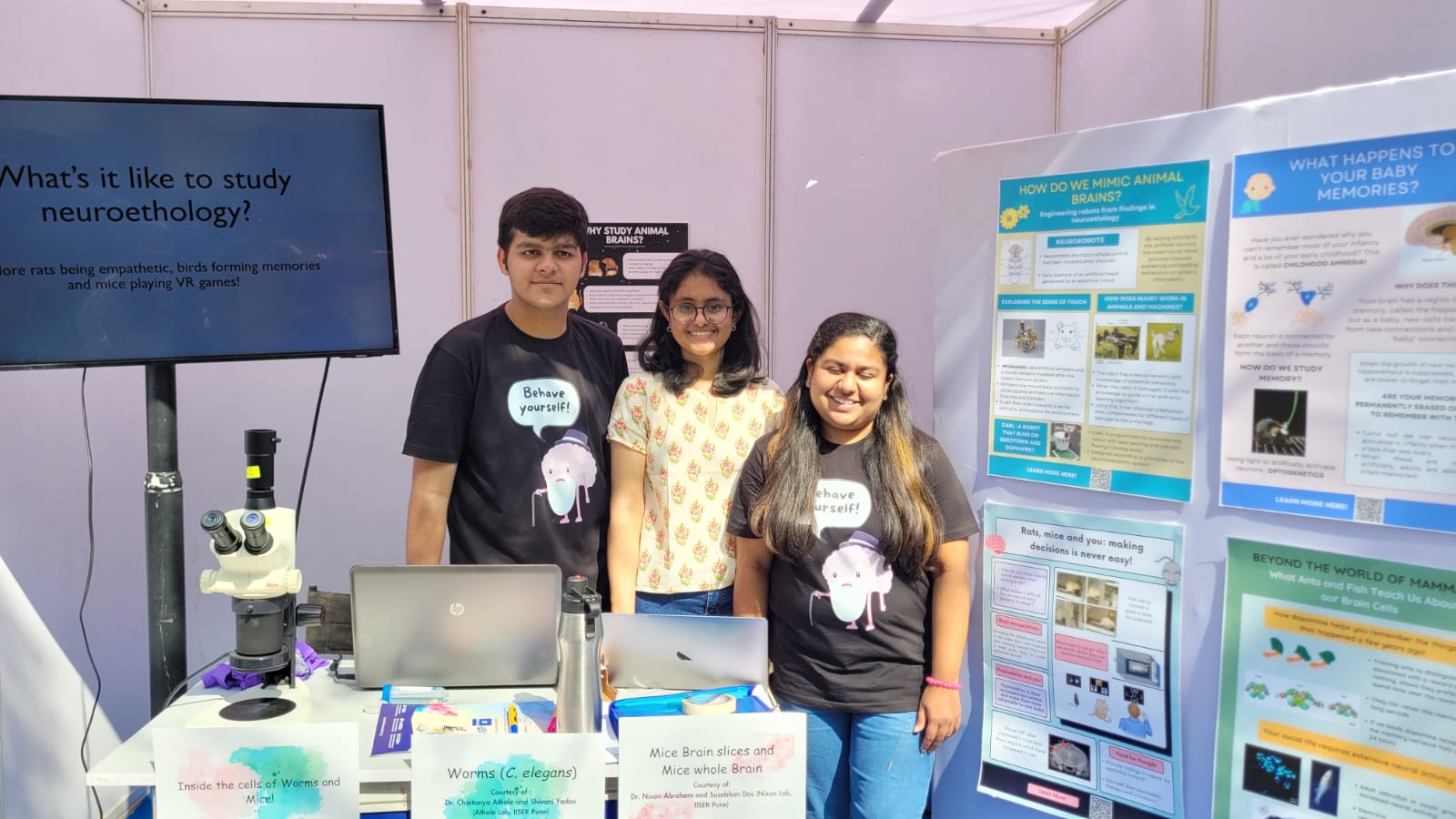
Submitted by Emily Rigby on Mon, 05/02/2024 - 14:03
PDN PhD Student and Gates-Cambridge Scholar ’23, Spatika Jayaram, recently won an Outreach Grant to participate and speak at the India Science Festival, where she hosted an exhibit explaining behavioural neuroscience to wide audiences of over 2000 people in India. Spatika wrote about her experience:
"Why do we forget most of our memories from infancy? How can psychedelics help rats decide better? What happens when worms are high?
These were some of the questions we explored at the behavioural neuroscience booth at the India Science Festival (ISF), organized by the Foundation for Advancing Science and Technology, India. The festival was held at the Indian Institute of Science Education and Research (IISER), Pune, India. The festival explored an interplay of science, technology, and innovation, with this year’s theme exploring ‘Mind, machines and the endless frontier’, through new age science communication and outreach initiatives in India. I was awarded an Outreach Grant from the Society for Experimental Biology, to attend the festival to broaden the scope for experimental neuroscience research within India. ISF is a nationwide, one-of-a-kind science festival in India, bringing scientists, industry professionals, and science policy individuals together.
At ISF, I hosted a booth explaining behavioural neuroscience through educational posters. We received support from professors at the institute, and demonstrated a live mouse brain and wriggling microscopic worms (C. elegans) for people to see. We also had a screen displaying experiments on how rats show empathy, how birds communicate, and how mice navigate virtual-reality experiments. I was also selected to be a finalist for a contest called Talk Your Thesis, which involved communicating my research to a wide audience in 6 minutes. My talk was entitled, ‘A Tale of Two Transmitters : Serotonin and Friends’, and explored how brain chemicals need to work together for normal functioning, and how they work in depression. A video of my talk will be up soon, but it has been put up on their Instagram page. The festival witnessed over 20,000 attendees, It was wonderful interacting with school and college students, academics and professionals, particularly those from state schools and colleges, otherwise unable to access resources to proceed in scientific research. Several attendees had heard from a scientist for the first time."



